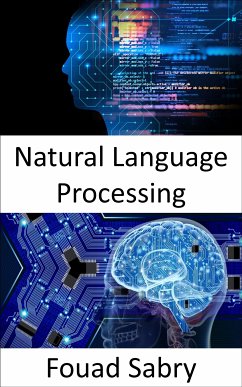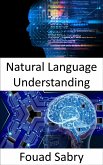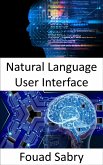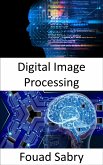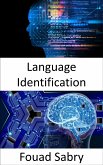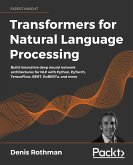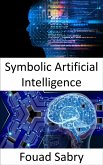What Is Natural Language Processing
Natural language processing (NLP) is a subfield of linguistics, computer science, and artificial intelligence that focuses on the interactions between computers and human language, specifically how to train computers to process and analyze massive volumes of natural language data. NLP is an interdisciplinary subfield that focuses on the interactions between computers and human language. The end goal is to have a computer that is capable of "understanding" the contents of documents, including the contextual intricacies of the language that is used within them. After that, the system is able to accurately extract information and insights contained within the papers, in addition to classifying and organizing the documents themselves.
How You Will Benefit
(I) Insights, and validations about the following topics:
Chapter 1: Introduction to Natural Language Processing
Chapter 2: Tokenization and Text Normalization
Chapter 3: Part-of-Speech Tagging
Chapter 4: Parsing and Syntax Trees
Chapter 5: Named Entity Recognition
Chapter 6: Sentiment Analysis
Chapter 7: Machine Translation
Chapter 8: Word Embeddings and Vector Space Models
Chapter 9: Deep Learning for Natural Language Processing
Chapter 10: Dialogue Systems and Chatbots
(II) Answering the public top questions about natural language processing.
(III) Real world examples for the usage of natural language processing in many fields.
(IV) 17 appendices to explain, briefly, 266 emerging technologies in each industry to have 360-degree full understanding of natural language processing' technologies.
Who This Book Is For
Professionals, undergraduate and graduate students, enthusiasts, hobbyists, and those who want to go beyond basic knowledge or information for any kind of natural language processing.
Natural language processing (NLP) is a subfield of linguistics, computer science, and artificial intelligence that focuses on the interactions between computers and human language, specifically how to train computers to process and analyze massive volumes of natural language data. NLP is an interdisciplinary subfield that focuses on the interactions between computers and human language. The end goal is to have a computer that is capable of "understanding" the contents of documents, including the contextual intricacies of the language that is used within them. After that, the system is able to accurately extract information and insights contained within the papers, in addition to classifying and organizing the documents themselves.
How You Will Benefit
(I) Insights, and validations about the following topics:
Chapter 1: Introduction to Natural Language Processing
Chapter 2: Tokenization and Text Normalization
Chapter 3: Part-of-Speech Tagging
Chapter 4: Parsing and Syntax Trees
Chapter 5: Named Entity Recognition
Chapter 6: Sentiment Analysis
Chapter 7: Machine Translation
Chapter 8: Word Embeddings and Vector Space Models
Chapter 9: Deep Learning for Natural Language Processing
Chapter 10: Dialogue Systems and Chatbots
(II) Answering the public top questions about natural language processing.
(III) Real world examples for the usage of natural language processing in many fields.
(IV) 17 appendices to explain, briefly, 266 emerging technologies in each industry to have 360-degree full understanding of natural language processing' technologies.
Who This Book Is For
Professionals, undergraduate and graduate students, enthusiasts, hobbyists, and those who want to go beyond basic knowledge or information for any kind of natural language processing.
Dieser Download kann aus rechtlichen Gründen nur mit Rechnungsadresse in A, B, BG, CY, CZ, D, DK, EW, E, FIN, F, GR, H, IRL, I, LT, L, LR, M, NL, PL, P, R, S, SLO, SK ausgeliefert werden.

